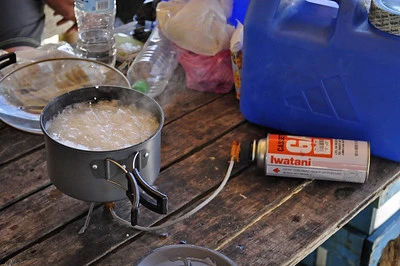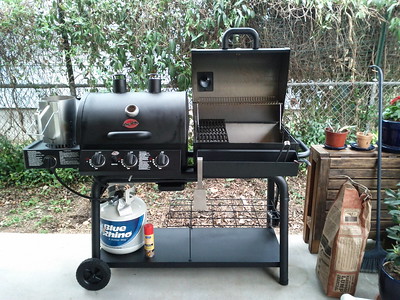
Butane fuel can be found in various applications like camping stoves, lighters, and portable heaters. To make butane last longer, here are some suggestions:
General Tips:
- Proper Storage: Store butane canisters in a cool, dry place away from direct sunlight. This helps maintain the integrity of the canister and the fuel.
- Quality: Use high-quality butane. Impurities can lead to inefficient burning.
- Shake Before Use: Some manufacturers recommend shaking the canister before attaching it to your appliance. This can help mix the butane properly and lead to more efficient use.
For Cooking Stoves and Heaters:
- Preheat Efficiently: Preheat your cooking device for just the necessary amount of time. Excessive preheating can waste fuel.
- Cooking Efficiency: Use a windscreen to protect the flame from wind, which can make it burn more fuel to maintain its heat.
- Lower Flame: Use the minimum flame necessary to accomplish your cooking or heating needs. A higher flame will use up butane more quickly.
- Use Lids: When cooking, always use a lid on your pots and pans to keep the heat in, allowing you to use a lower flame.
- Plan Meals: If you’re camping, plan one-pot meals to minimize cooking time and butane usage.
- Batch Cooking: Cook large quantities at once and reheat later, rather than cooking multiple times.
For Lighters:
- Optimal Flame Size: Keep the flame size as small as necessary. Most refillable lighters allow you to adjust the flame size.
- No Flicking: Repeatedly flicking a lighter without it igniting wastes butane. If it doesn’t light after a few tries, let it rest for a bit and then try again.
- Multi-Use Lighters: Some lighters are more efficient than others. Choose ones designed for extended use.
- Regular Maintenance: Keep the lighter clean and well-maintained to make sure it operates efficiently.
- Use Sparingly: Obviously, the less you use the lighter, the longer the butane will last. Use matches or other alternatives where possible.
For Torch Lighters and Culinary Torches:
- Short Bursts: Use short bursts instead of a continuous flame.
- Effective Positioning: Hold the torch in such a way that the flame covers the area efficiently.
- Maintenance: Regular cleaning of the nozzle can ensure that it burns butane efficiently.
- Turn Off Properly: Make sure that you have completely turned off the torch when done to avoid any leaks.
Remember to always follow the safety guidelines provided by the manufacturer for using, storing, and disposing of butane canisters. Always use butane devices in well-ventilated areas and away from explosions.
For Portable Heaters:
- Room Size: Use the heater in an appropriately sized room. Using a large butane heater in a small space is inefficient.
- Insulate: Make sure the room is well-insulated to minimize heat loss, thereby requiring less fuel to maintain a warm temperature.
- Temperature Setting: Use the lowest comfortable setting. Some heaters offer variable heat settings, and selecting a lower one will consume less fuel.
- Heater Efficiency: Look for heaters that are designed to be fuel-efficient. These often have features like ceramic elements that distribute heat more evenly, requiring less fuel.
- Regular Checks: Check for leaks and loose connections frequently. Even a small leak can quickly deplete a butane canister.
- Shutdown When Not Needed: Turn off the heater when you leave the room or go to sleep to save fuel.
Safety First:
- Ventilation: Ensure adequate ventilation when using any butane device to prevent the accumulation of harmful gases.
- Follow Manufacturer Guidelines: Always read and follow the instructions provided by the device’s manufacturer for optimal and safe operation.
- Check for Leaks: Before attaching a new canister, make sure there are no leaks in your appliance.
- No DIY: Never attempt to refill disposable butane canisters or tamper with refillable ones unless you are experienced and knowledgeable about the process.
By practicing these tips and methods, you can extend the life of your butane canisters and use them more efficiently, whether for cooking, heating, or other purposes.
Read also: Where Should You Store Butane Canisters at Home?
Factors That Affect Butane Longevity
Butane, a versatile and commonly used fuel, can be found in a variety of applications ranging from lighters to portable stoves. However, the lifespan of butane can vary greatly depending on several factors. Understanding these factors can help you optimize your use of butane, ensuring it lasts as long as possible. Here are some key variables to consider:
Quality of Butane
Purity Level – The purity of butane plays a crucial role in its performance and longevity. High-quality, pure butane burns more efficiently and cleanly, meaning you’ll need less of it to achieve the same results as a lower-quality alternative.
Additives and Impurities – Some butane products contain additives or impurities that can clog burners or nozzles over time, affecting both performance and lifespan. Always check the manufacturer’s specifications to make sure you’re getting a high-quality product.
Equipment Efficiency
- Maintenance – Regular cleaning and maintenance of your butane-burning equipment can dramatically extend both the life of the equipment and the butane it uses. Build-up of grime, dust, or even rust can affect the efficiency of the fuel burning process.
- Design and Technology – More advanced or specialized equipment often burns butane more efficiently. For example, some stoves and torches are designed to reduce waste, optimizing the fuel-to-air ratio for more complete combustion.
Ambient Temperature and Conditions
- Temperature – Butane’s performance is influenced by ambient temperature. Cold conditions can reduce pressure in a butane canister, making it less efficient. Conversely, extremely hot conditions can make butane more volatile, which may also impact its longevity.
- Humidity – In some cases, moisture can enter the butane storage canister, especially if it’s not sealed properly. This can result in inefficient burning, affecting the lifespan of your butane.
Frequency and Manner of Use
- Duration and Intensity – The longer and more intensely you use your butane-burning device, the faster you’ll go through the fuel. Understanding your usage patterns can help you make adjustments to prolong the life of your butane.
- Proper Usage – Following the manufacturer’s guidelines for use can significantly extend the lifespan of your butane. Overpressurizing the device or using it for unintended purposes can quickly deplete your fuel.
By paying attention to these factors, you can get a better understanding of how to make your butane last longer. It’s not just about the butane itself, but also how it’s used and stored, and the efficiency of the equipment in which it’s used. All these variables contribute to the overall longevity of your butane supply.
Read also: 5 Methods to Know How Much Butane is Left in a Bottle?
Why Butane Efficiency Matters
Optimizing the efficiency of butane usage is not just a matter of personal convenience; it also has broader implications for economics, the environment, and safety. Here’s why focusing on butane efficiency is important in these three key areas:
Economic Benefits: Reducing Costs Over Time
Cost-Effectiveness
One of the most immediate benefits of making your butane last longer is financial savings. Whether you’re using butane for a portable stove, a torch, or other appliances, the costs can add up over time. By using butane more efficiently, you’re effectively getting more value out of each canister or refill, which translates into savings.
Reduced Frequency of Purchases
If you can extend the life of your butane, you’ll need to buy it less frequently. This not only saves you money but also the time and effort it takes to purchase and transport new butane supplies.
Environmental Impact: Lower Emissions
Resource Conservation
Butane is a hydrocarbon fuel, and its production involves drilling for natural gas or refining crude oil—processes that have environmental impacts. Using butane more efficiently means you’ll need less of it, which in turn means less resource extraction.
Lower Carbon Footprint
When burned, butane produces carbon dioxide among other emissions. While it’s considered a cleaner fuel compared to others like coal, being efficient in its use still helps to reduce your carbon footprint. Fewer emissions mean less contribution to air pollution and global warming.
Safety Aspects: Less Frequent Need to Replace or Refill Butane Sources
Reduced Risk of Accidents
Handling butane canisters or refilling appliances comes with its own set of risks, including the potential for leaks or even explosions if not done correctly. The less frequently you have to handle butane, the lower your risk of encountering such hazards.
Convenient and Reliable
If you’re using butane for critical applications like cooking or heating, running out can be more than just an inconvenience—it could be a safety issue. By making your butane last longer, you ensure that you have a reliable source of fuel when you need it.
Regulatory Compliance
In some areas, there are legal restrictions on how much butane can be stored in residential or commercial settings. Being efficient in your use of butane can help you stay within these legal limits, reducing the risk of penalties or other legal complications.
Conclusion
In this article, we’ve covered essential tips for extending the life of your butane supply, touching on its economic, environmental, and safety implications. From choosing high-quality butane to maintaining your equipment and being mindful of how and when you use it, each strategy plays a role in improving efficiency.
The importance of this topic goes beyond personal convenience and financial savings; it also aligns with broader goals of sustainability and safety. Making your butane last longer reduces your environmental footprint and minimizes safety risks associated with frequent handling of fuel canisters.
In summary, a more efficient use of butane benefits not just individual users but also the community and the planet at large. Small steps can make a big difference in how long your butane lasts, and these benefits ripple outwards in meaningful ways.
Thank you for reading, and here’s to a more efficient use of butane for all.

Jeremy is a highly experienced professional propane technician with over 21 years of experience in the industry. Throughout his career, he has gained extensive knowledge and expertise in propane gas installation, maintenance, and repair, as well as in ensuring safety and compliance with industry standards. Mike has worked with various residential, commercial, and industrial clients, providing top-notch services and solutions to meet their propane needs. He is dedicated to his craft and passionate about delivering exceptional service to his clients.







